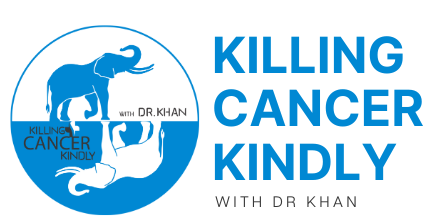When It Stops Working and What to Do Next
When diagnosed with metastatic prostate cancer, one of the primary treatment options doctors may recommend is hormone therapy. Also known as androgen deprivation therapy (ADT), hormone therapy aims to lower the levels of male hormones, like testosterone, in the body. These hormones can fuel the growth of prostate cancer cells. However, over time, hormone therapy may become less effective, leading to what is known as castration-resistant prostate cancer (CRPC).
In this article, we will explore the ins and outs of hormone therapy for metastatic prostate cancer, why it might stop working, and what steps you can take when faced with this situation.
Understanding Hormone Therapy
What is Hormone Therapy?
Hormone therapy involves the use of medications or treatments to lower the levels of androgens (male hormones), particularly testosterone, in the body. By doing so, it aims to slow down or shrink the prostate cancer cells that depend on these hormones to grow and divide. It is an effective treatment for metastatic prostate cancer and may be used in combination with other therapies, such as radiation or chemotherapy.
When Might You Have Hormone Therapy?
Your doctor may recommend hormone therapy for metastatic prostate cancer if the cancer has spread beyond the prostate gland to other parts of the body, such as the bones or lymph nodes. It may also be used as a neoadjuvant therapy before radiation or surgery to shrink the tumor and improve the chances of successful treatment.
Types of Hormone Therapy
Injections
Injections are one form of hormone therapy, and they can be administered at a doctor’s office or clinic. Some common injectable hormone therapies include:
- Luteinising Hormone-Releasing Hormone Agonists (LHRH Agonists or LH Blockers)
LHRH agonists work by initially stimulating the release of hormones that lead to increased testosterone levels. However, continuous use eventually causes a decrease in testosterone production.
- Gonadotrophin-Releasing Hormone Antagonist or GnRH Blocker
GnRH antagonists work differently from LHRH agonists. They immediately block the action of GnRH, which prevents the production of testosterone as GnRH is required to stimulate testosterone production in the body.
Tablets
Oral medications are another option for hormone therapy. They can be taken at home, making them more convenient for some patients. Two common types of tablets used for hormone therapy are:
- Antiandrogen Tablets
Antiandrogens work by blocking the action of androgens on prostate cancer cells, preventing them from receiving the signals they need to grow.
- Abiraterone Tablets
Abiraterone is a newer drug that helps decrease the production of androgens not only in the testicles but also in other parts of the body.
Finding Out More About Hormone Treatment Drugs
It is crucial to understand the different hormone treatment drugs prescribed by your doctor. Each drug may have unique side effects and interactions with other medications. Your healthcare team will provide you with detailed information about the drugs, how to take them, and what to expect during treatment.
Surgery to Remove the Testicles (Orchidectomy)
Another approach to hormone therapy is a surgical procedure called orchidectomy, which involves the removal of the testicles. The testicles are the primary source of testosterone production, and by removing them, the levels of testosterone in the body significantly decrease. Orchidectomy is a permanent form of hormone therapy and may be an option for some patients.
Before You Start Hormone Treatment
Before beginning hormone therapy, your healthcare team will conduct a thorough assessment of your overall health and prostate cancer stage. They will discuss the potential benefits and side effects of hormone therapy and address any concerns you may have. It’s essential to have open and honest communication with your doctor throughout the treatment process.
How Often You Have Hormone Therapy
The frequency and duration of hormone therapy can vary depending on your specific situation and response to treatment. Some patients may undergo continuous hormone therapy, while others may have intermittent or short-term hormone therapy based on their cancer stage and individual needs.
Where You Have Treatment
Hormone therapy can be administered at various healthcare facilities, including hospitals, cancer centers, or specialized clinics. Your healthcare team will guide you on the most suitable location for your treatment and provide you with the necessary support and resources.
Checking Your Hormone Therapy is Working
During the course of hormone therapy, your doctor will regularly monitor your progress through blood tests and imaging scans. These tests help determine if the treatment is effectively lowering your testosterone levels and whether the cancer is responding to the therapy.
When Hormone Therapy Stops Working
Castration-Resistant Prostate Cancer (CRPC)
At some point, hormone therapy may become less effective in controlling the growth of prostate cancer cells. This stage is known as castration-resistant prostate cancer (CRPC). In CRPC, the cancer cells find ways to grow even with very low levels of testosterone in the body.
Why Does Hormone Therapy Stop Working?
Hormone therapy stops working in CRPC because the cancer cells develop genetic changes or mutations that allow them to bypass the need for testosterone for growth.
How Do Doctors Tell if Hormone Therapy Stops Working?
Your doctor will monitor your PSA (prostate-specific antigen) levels to assess the effectiveness of hormone therapy. If your PSA levels begin to rise despite hormone therapy, it may be an indication that the treatment is no longer controlling the cancer’s growth.
What to Do When Hormone Therapy Stops Working
When hormone therapy stops working, there are other treatment options available to manage metastatic prostate cancer, however, these are used in addition to baseline hormone therapy. The reason for this is that even hormone-resistant prostate cancers have some level of dependency on male hormones to grow and treatment is still of some benefit.
Additional treatments include:
- Chemotherapy: Chemotherapy drugs can target and kill cancer cells, providing an additional treatment option when hormone therapy is no longer effective.
- Immunotherapy: Immunotherapy boosts the body’s immune system to recognize and attack cancer cells.
- Targeted Therapy: Targeted therapies specifically target certain molecules or pathways that drive cancer growth.
- Clinical Trials: Participating in clinical trials can provide access to new treatments and therapies being investigated.
Other Treatment Options for Metastatic Prostate Cancer
Aside from hormone therapy, there are other treatment options for metastatic prostate cancer, including radiation therapy, surgery, and palliative care. Each patient’s treatment plan is tailored to their unique medical history and cancer stage.
Managing the Side Effects of Prostate Cancer Treatment
Hormone therapy can cause side effects, such as hot flashes, fatigue, reduced sex drive, and weight gain. It’s essential to discuss any side effects with your healthcare team so they can provide guidance and support to manage them effectively.
Living with Metastatic Prostate Cancer
Living with metastatic prostate cancer can be challenging, but there are resources available to provide physical and emotional support. Support groups, counseling services, and palliative care teams can assist patients and their families in coping with the impact of the disease.
conclution
Hormone therapy is a critical and effective treatment for metastatic prostate cancer. However, over time, it may stop working as the cancer cells adapt to low testosterone levels. When this happens, there are several other treatment options available to manage the disease. By working closely with your healthcare team, you can make informed decisions about your treatment and maintain the best possible quality of life.


